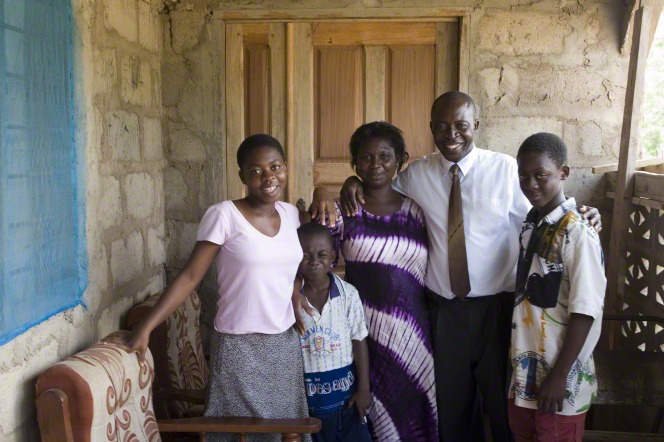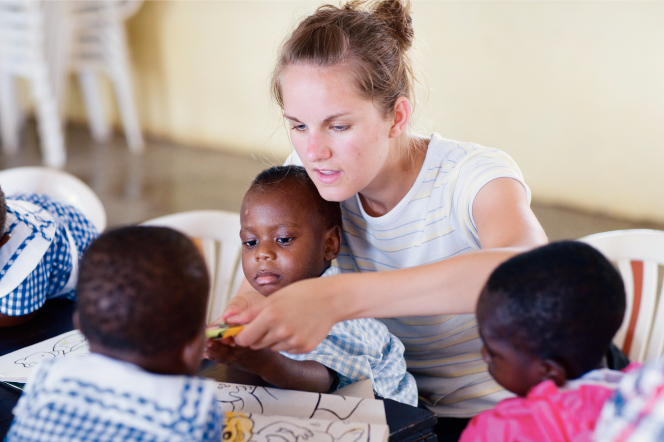About a year ago, my husband, young son, and I packed
up our suburban lives and relocated to a tiny apartment in Brooklyn, New York. Indefinitely. It was not our first time in the city, so we had at least an
idea of the culture shock that would be involved in our transition. Still, we
were up for the challenge and looked forward to this new adventure.
I have to admit that it is definitely hard to live here, harder than I anticipated, and it comes with many sacrifices. But what has surprised me the most has been the exceptional opportunities for spiritual growth and learning. Since moving here, I’ve had personal experiences with one Apostle, one General Authority Seventy, two Area Seventies, and four General Presidency members (Primary, Young Women, and Relief Society). Each of these experiences required effort and sacrifice on my part to be in attendance, but the blessings and insights received were magnified exponentially in comparison, and caused me to reflect on what it means for me to be a Latter-day Saint. In the last few General Conferences, there has been a call for greater service, particularly for those effected by the refugee crisis. Here are four things I have learned while living in NYC that have helped me answer this call to get involved in relief efforts:
I have to admit that it is definitely hard to live here, harder than I anticipated, and it comes with many sacrifices. But what has surprised me the most has been the exceptional opportunities for spiritual growth and learning. Since moving here, I’ve had personal experiences with one Apostle, one General Authority Seventy, two Area Seventies, and four General Presidency members (Primary, Young Women, and Relief Society). Each of these experiences required effort and sacrifice on my part to be in attendance, but the blessings and insights received were magnified exponentially in comparison, and caused me to reflect on what it means for me to be a Latter-day Saint. In the last few General Conferences, there has been a call for greater service, particularly for those effected by the refugee crisis. Here are four things I have learned while living in NYC that have helped me answer this call to get involved in relief efforts:
1. Removing Any Fears and Prejudices
Something I love the most about NYC is its diversity. I truly enjoy the interaction, association, and friendships with
people of other cultures, religions, and backgrounds. I am pleased when I find
common truths among us and even more pleased when I see people who are living peaceably
despite differences and disagreements. It
is well-known that NYC is home to many immigrants and refugees. In fact, my own
ward is home to many immigrant and refugee families whom I’ve come to know and
love. So I feel sad when I see others getting caught up in the
sensationalism of mass media, including social media. I have come to learn and
understand what Nobel Prize winner Alexis Carrel meant when he said, “A few
observation and much reasoning lead to error; many observations and a little
reasoning to truth.”1 Holding on to fears and prejudices, which may be rooted in
falsehoods and misrepresentations, will prevent you from living with tolerance and
love. Elder Dallin H. Oaks, a member of the Quorum of the Twelve Apostles and a
champion for religious freedom, said this in a 2011 CES devotional: “As
modern transportation and communication have brought all of us into closer
proximity to different peoples and different ideas, we have greater need for
tolerance…All persons are brothers and sisters under God, taught within their
various religions to love and do good to one another. President Gordon B.
Hinckley expressed this idea for Latter-day Saints: ‘Each of us [from various
religious denominations] believes in the fatherhood of God, although we may
differ in our interpretations of Him. Each of us is part of a great family, the
human family, sons and daughters of God, and therefore brothers and sisters. We
must work harder to build mutual respect, an attitude of forbearance, with
tolerance one for another regardless of the doctrines and philosophies which we
may espouse.’”2

2. Having a Service-Oriented Mind
As Neill F. Marriott, second counselor
in the Young Women General Presidency, has asked us to become “other minded.”3 For
whatever reason, I tend to be a little selfish, wanting to stay
within myself and meet my own needs. Being in a big city doesn’t help that, and
I continually find myself trying to beat others to get a seat on the train,
avoiding eye-contact and being stingy with my smiles to avert extra conversations,
or strictly adhering to my to-do list because time is such a precious commodity
here. But I Have realized that when I stay in
my own mind, I am actually suppressing the light of Christ that is in me and that
desperately needs to be shared. Weronika Janczuk (director of education at the
World Youth Alliance) said that “we have a responsibility to mother [nurture]
our children as well as nurture others around us.”4 Sister Marriott supported
this statement in her most recent General Conference talk when she said, “We
build the kingdom when we nurture others... Nurturing is not limited to bearing
children… ‘to mother’ means ‘to give life’… Think of the many ways you give
life. It could mean giving emotional life to the hopeless or spiritual life to
the doubter. With the help of the Holy Ghost, we can create an emotionally
healing place for the discriminated against, the rejected, and the stranger.”5 Living in NYC has taught me to think outside-of-the-box of the traditional understanding
of service and charity. It’s deeper than a plate of cookies and can't always be easily measured.
3. Finding Opportunities in My Own Community
In the most recent General Conference,
Linda K. Burton (General Relief Society President), specifically gave the call
for us to “prayerfully determine what you can do – according to your own time
and circumstance – to serve the refugees living in your neighborhoods and
communities.”6 There are many out there who are in desperate need of the
specific and unique talents we can offer. When I’m being mindful and sensitive
to the Spirit, these opportunities seem to find me. One way our family has
answered this call is by mentoring and keeping watch care for a family in my
son’s school. I also became a member of a United Nations committee on the
family, which unites me with other individuals who also share my same belief
that the family is the fundamental unit of society. As I attend meetings and
panel discussions, I am kept in the loop of world affairs (without the tarnish
of mass media) and provided with the most up-to-date research that gives me new
insights as to how I can strengthen homes and families, particularly for those
families who are hurting or struggling.

4. Embedding Family History into our Lives
Our son naturally enjoys learning of his
heritage and listening to old family stories. But beyond enjoyment, studies
show that kids who know a lot about their families tend to do better during
challenging times. In a 2008 publication from Emory University, one study
showed that “knowledge of family history is significantly correlated with
internal locus of control, higher self-esteem, better family functioning, greater
family cohesiveness, lower levels of anxiety, and lower incidence of behavior
problems.”7 Knowing this information and tapping into the Church’s vast
genealogical resources, I’ve found that family history can be a way to strengthen individual
children and their families. In my work and service, I have noticed that the
families that struggle the most usually have little contact with or help from other
family members, including extended family. I believe that all humans are wired
to connect with their families. It is by divine design that maintaining family
ties is essential for healthy development. Regarding refugee families, UNICEF
has developed a program called RapidFTR that expedites family tracing and
reunification.8 This is helping children and their caregivers reunite – a basic necessity
for safety and survival. Our Father’s plan has always been about families. The
Spirit of Elijah is felt both in and out of the Church. "And he shall turn
the heart of the fathers to the children, and the heart of the children to
their fathers, lest I come and smite the earth with a curse.”9
References:
2. Truth and Tolerance, by Elder Dallin H. Oaks, CES Devotional for Young Adults • September 11, 2011 • BYU
https://www.lds.org/broadcasts/article/ces-devotionals/2011/01/truth-and-tolerance?lang=eng
https://www.lds.org/broadcasts/article/ces-devotionals/2011/01/truth-and-tolerance?lang=eng
3. United Nations NGO Committee on the Family panelist discussion, March 24, 2016, Neill F. Marriott
4. United Nations NGO Committee on the Family panelist discussion, March 24, 2016, Weronika Janczuk
5. What Shall We Do, by Neill F. Marriott, April 2016 General Conference
6. I Was a Stranger, by Linda K. Burton, April 2016 General Conference
7. Knowledge of family history as a clinically useful index of psychological well-being and prognosis: A brief report.; Duke MP, Lazarus A, Fivush R.; Department of Psychology, Emory University.
9. Malachi 4:6
Resources:
1. I Was a Stranger, refugee help
2. UNICEF
3. United Nations NGO Committee on the Family
 Jefra Rees is the wife of a loving husband and the mother of a young son with sensory processing challenges. She holds a Bachelor's Degree in Child Development and also has a Master's Degree in Early Childhood Special Education, both from the University of Texas at Austin. She has worked with children and families in a variety of settings, but her greatest work is that which is done in her own home.
Jefra Rees is the wife of a loving husband and the mother of a young son with sensory processing challenges. She holds a Bachelor's Degree in Child Development and also has a Master's Degree in Early Childhood Special Education, both from the University of Texas at Austin. She has worked with children and families in a variety of settings, but her greatest work is that which is done in her own home.






